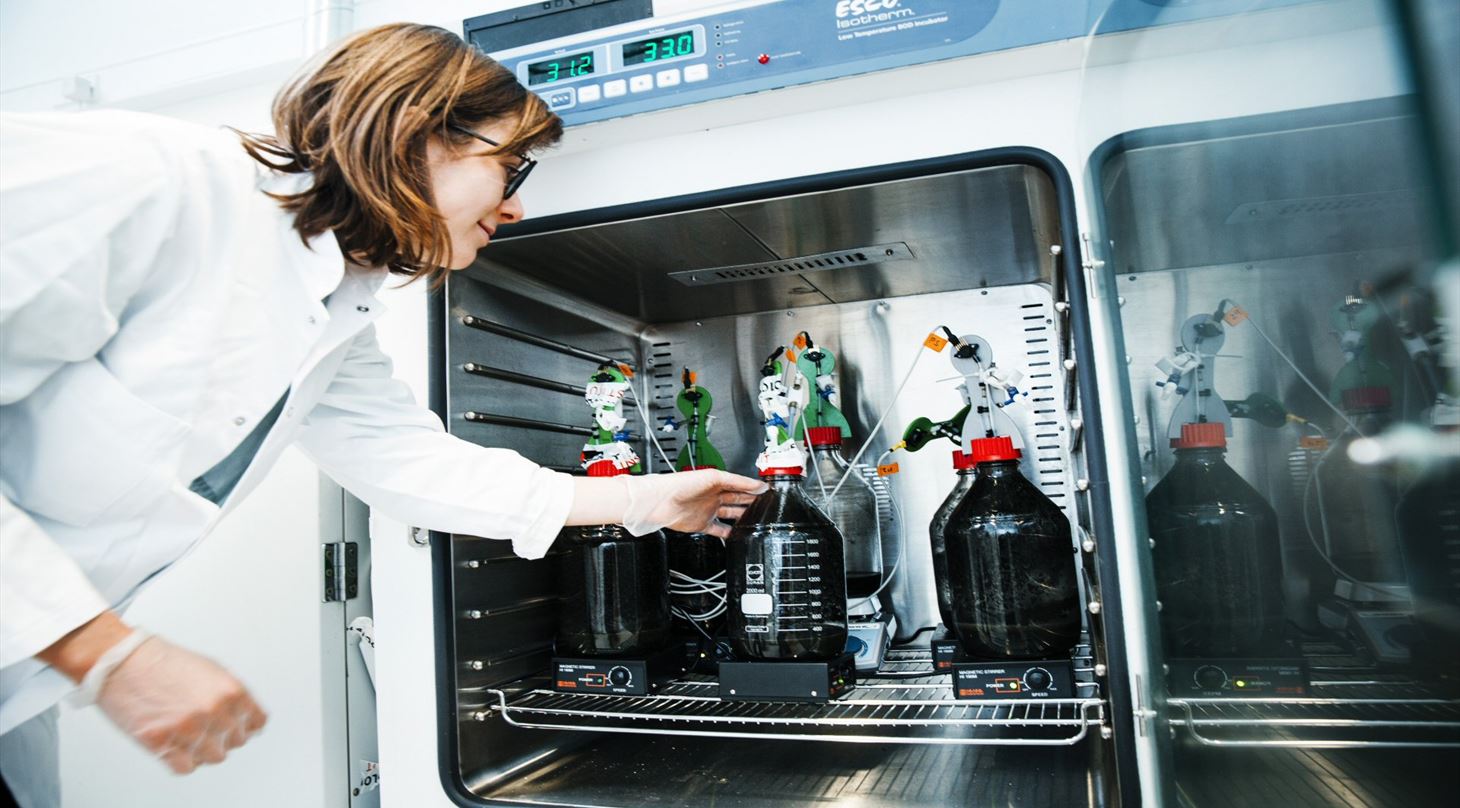
Project - ElectroGas - Storage of surplus electricity
ElectroGas – The renewable e-power buffer
Project start 2015. Expected completion 2018.
The supply of electricity from renewable sources like wind and sun is rather erratic and periodically shows either a surplus or a shortage. Today, electricity production is clearly dependent on the production of green energy with electricity prices that are frequently zero or even negative on the free markets. These fluctuations clearly demonstrate the growing need for local large-scale electricity buffers to store surplus electricity – technology that currently is non-existent. Therefore, technologies for large-scale storage of green energy will be vital in a society that solely depends on renewable energy sources.
In this research project (ElectroGas), we will develop a game-changing biotechnology platform for the conversion and storage of surplus electricity. As a platform, we will use biogas reactors and their inherent microflora to convert surplus energy to methane (CH4), which can be stored or further upgraded for transport in the natural gas grid. Surplus electricity is supplied to microorganisms either through Direct Electron Transfer (DIET) or as molecular hydrogen (H2) to produce CH4.
To reach its goal, this project will:
- Study how microbes in the anaerobic reactors respond to the addition of H2 and electrons
- Study the biological limits and possibilities of the biotechnology
- Develop new technology for process upscaling and control
At Danish Technological Institute, scientists and engineers are currently elucidating the biological possibilities and limitations of adding hydrogen to the biogas system for energy storage. DTI is carrying out laboratory and full-scale experiments in collaboration with universities and companies in order to develop an energy platform of tomorrow.
Participants
- Aarhus University, Department of Engineering (Project Leader, WP Leader)
- Aarhus University, Department of Bioscience (WP Leader)
- University of Southern Denmark, Department of Biology (WP Leader)
- University of Brisbane, Advanced Wastewater Management Center
- University of Southern California, Seaver Science Center
- Standford University (affiliated partner)
- Landia Ltd.
- Xergi Ltd.
- Danish Technological Institute, Life Science Division (WP Leader)
This project is funded by Innovation Fund Denmark.